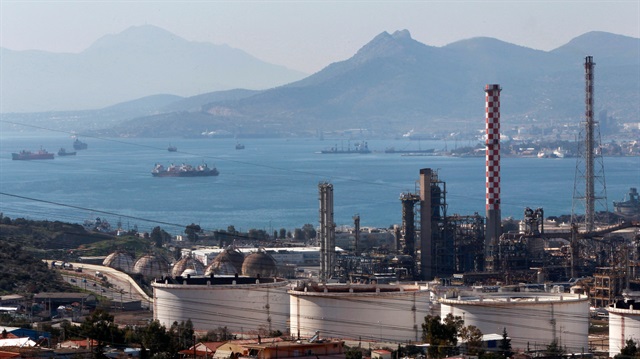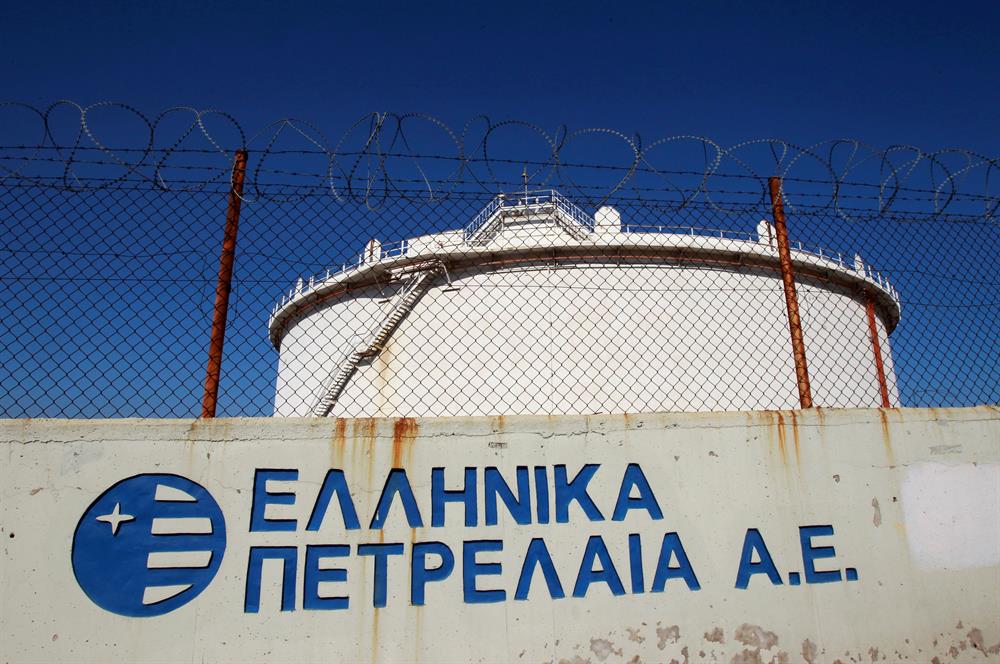
Workers at Hellenic Petroleum on Monday physically prevented suitors eyeing a majority stake in Greece's biggest oil refiner from entering two of its sites in protest at plans to privatise the utility, a union spokesman said.
While privatisations have been a key part of successive bailout agreements Greece has struck since 2010, they have been met with strong political resistance.
Greece still has a series of deals to complete under the terms of its latest bailout which ended last week, including the sale of a 50.1 percent stake in Hellenic jointly held by the state and Paneuropean Oil and Industrial Holdings.
The country's privatisation agency has shortlisted Anglo-Swiss Glencore Energy and Switzerland's Vitol Holding for the stake in Hellenic.
Glencore was scheduled to visit Hellenic's refineries in Aspropyrgos and Elefsina, about 12 miles outside Athens, on Monday.
However, representatives arriving at the sites failed to gain entry after workers walked off the job for four hours to picket the entrance to the facilities, the union and another source close to the privatisation process said.
The union said they planned more work stoppages for Tuesday and next week to protest the sale.
"Workers didn't let them in because they want to cancel Hellenic Petroleum's fire-sale", Panagiotis Ofthalmides, the head of their labour union representing about 2,000 workers, told Reuters.

Hellenic is strategically important for the country's national interests and should remain under state control, Ofthalmides said.
Hellenic Petroleum and Greece's privatisation agency both declined to comment on the action. Glencore could not immediately be reached for comment.
Glencore was due to visit Hellenic's third refinery in Thessaloniki on Tuesday, while its competitor, Vitol, is expected in Athens next week.
Ofthalmides said workers will not allow them to enter those sites either.
Greece aims to conclude Hellenic's sale by the middle of next year. A government source said the government has been in talks with the union and that the privatisation will be completed within the agreed timetable.
Greece has raised about 5 billion euros ($5.8 billion) from state assets since 2010 versus an original target of 50 billion euros, due to red tape, backtracking and opposition by unions.
It has made significant progress in recent months and is aiming for sales worth a further 3 billion euros by next year.
Hello, the comments you share on our site are a valuable resource for other users. Please respect other users and different opinions. Do not use rude, offensive, derogatory, or discriminatory language.
The floor is all yours.








